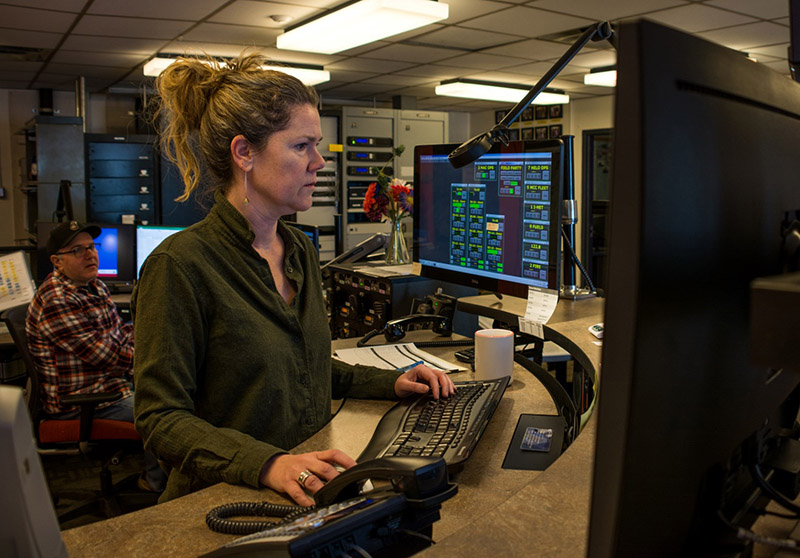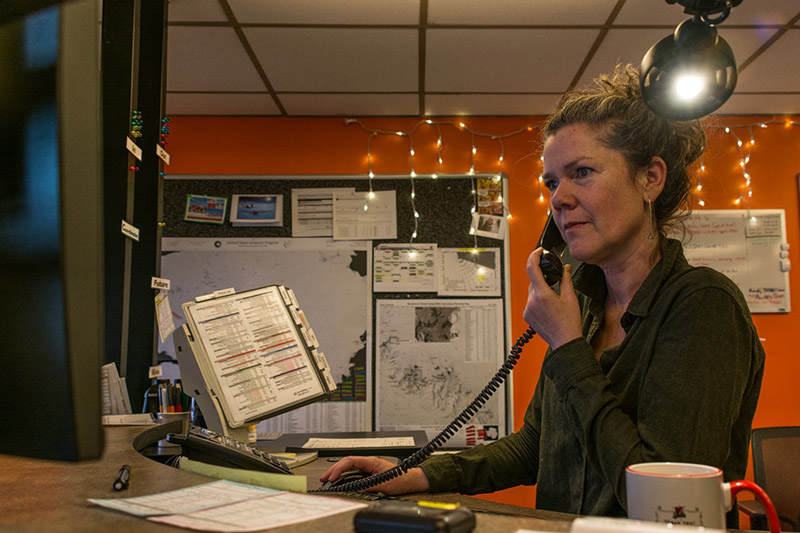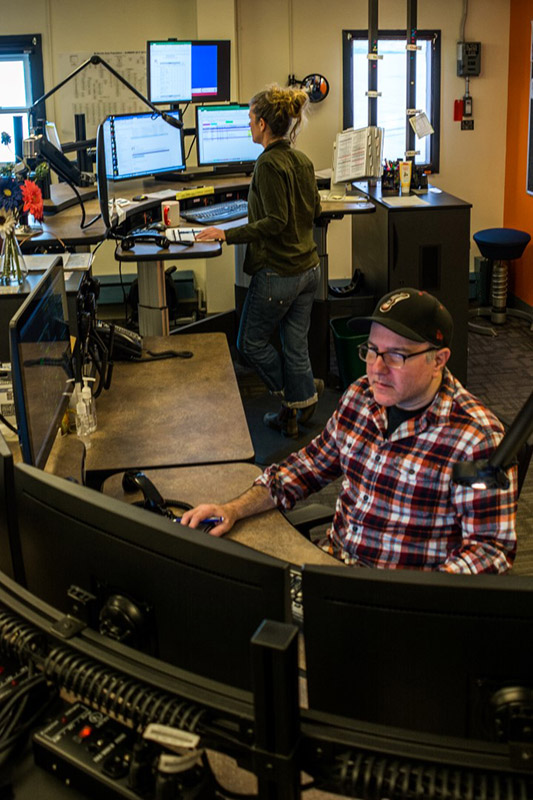
Photo Credit: Mike Lucibella
|
Communications operator Rebecca Ricards (foreground) calls up field camp information at the MacOps control console. Josh Young looks on.
|
Podcast: MacOps
By Michael Lucibella, Antarctic Sun Editor
Posted August 22, 2018

Photo Credit: Mike Lucibella
Communications operator Joshua Young (foreground) while Rebecca Ricards shares a laugh with monitoring the chatter coming in over the radio channels.
In Antarctica, scientists conduct cutting edge research on a harsh and barren continent. It's no easy task, but to help make it happen the U.S. Antarctic Program employs small army of support staff to get these researchers the supplies they need, transport them to where they need to go and keep them safe throughout.
A lot of the jobs they do are the same that any small town needs to function, often with a specialized twist that comes with working in such a remote place, but others can be less obvious. The Antarctic Sun Podcast is taking a behind-the-scenes look at the workers and what they do to make science at the bottom of the world possible.
This Episode: MacOps
Antarctica is a vast and potentially treacherous continent and the safety of researchers and support staff is of the utmost concern for everyone. Just knowing what's happening is a critical first step towards keeping everyone safe, but keeping the lines of communication open between the station and people working in the field requires a lot of effort. It takes a multitude of high frequency and very high frequency radios, a veritable forest of signal repeaters, a constellation of satellite phones and more to keep tabs on everyone.
All of those communication systems are routed through the nerve center of the station, MacOps. Short for "McMurdo Operations," it's the central communications hub where operators keep tabs on everyone off the station. Communications operators are in almost constant contact with the numerous field camps and sea ice groups, ready to send in search and rescue teams in an emergency or just say a friendly “hello” after a long hard day of work in a remote field camp.
Photo Gallery

Photo Credit: Mike Lucibella
Rebecca Ricards calls a field camp on the HF radio patched through to her phone.
|

Photo Credit: Mike Lucibella
MacOps got a major update this past season. The new consoles route a wide range of communications and tracking systems through the computers, giving the operators a host of information right at their fingertips.
|








